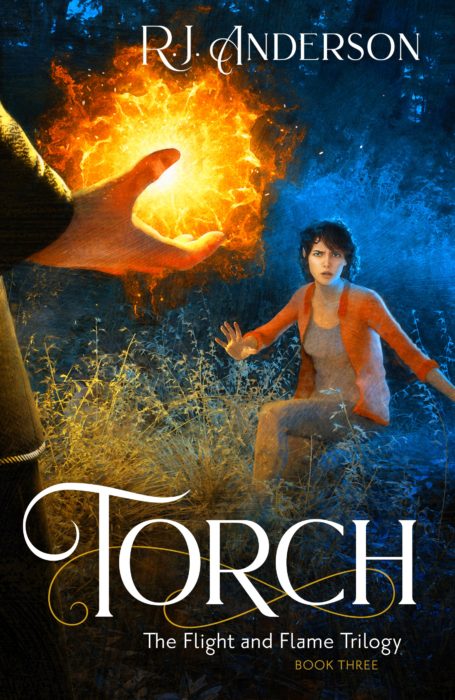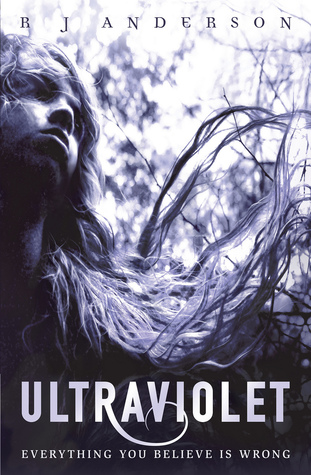The Death and Rebirth of Magic in Children’s Fantasy
As a young reader fresh from the wonders of Narnia and Middle-earth, I was eager to find more stories of fantastical new worlds and ordinary children going on quests to defeat the powers of evil.
I tore through the classic tales of E. Nesbit and Christian authors George MacDonald and John White as well as secular children’s writers like Lloyd Alexander, Ursula K. Le Guin, and Susan Cooper.
But the more fantasy I read, the more I noticed a recurring and depressing trend: Many of the stories ended with the death or loss of magic.
What caused this emphasis on ‘death of magic’ themes?
In the last chapters of The Lord of the Rings, the Elves sail away into the West, leaving the wonders they worked in Middle-earth to fade and be forgotten.
In the third book of Le Guin’s series, the magic of Earthsea is dying and the world is falling into chaos.
At the end of Cooper’s The Dark is Rising sequence, not only are the Drew siblings told that magic is retreating from the world, but they must have all their memories of it erased.
Book after book seemed to preach the same lesson: there’s no longer room for magic in the world, and you’re better off forgetting that it ever existed.
I hated that idea, especially the memory-wiping, which to me seemed monstrously unfair. Why were so many fantasy authors determined to tear down the soaring castles they’d built in my imagination and instead leave me in a cramped 1970s apartment?
As a bullied child I was painfully aware of reality, but dreaming of far-off worlds gave me comfort. The last thing I wanted to hear was that my yearning for unseen wonders and my hopes of good triumphing over evil were childish and outdated, and that if I wanted to grow up, I had to forget about them.
Looking back, I believe the “death of magic” trend took root in late 20th-century fantasy because of widespread ambivalence about technology and the increasing pace of modern life. There was a popular expectation that science would soon answer all humanity’s questions, leaving no room for mystery. Some feared industrialization would destroy what little beauty and wonder remained.
How did fantasy recover from this ‘death of magic’?
Later fantasy, however, started to reject this notion.
One of the first to defy the trend was Pamela Dean in the early 1990s. Her Secret Country books describe a group of modern children who discover another realm and go on extraordinary adventures. But at the end, instead being forced to return to their own world and forget about magic, they are allowed to tell their parents and even move to the new world!
Around the same time, early works of urban fantasy emerged, such as Emma Bull’s adult novel War for the Oaks. Here, fairies and other mythological creatures secretly live in the modern world and make full use of its conveniences for their own ends.

Torch, book 3 of R. J. Anderson’s The Flight and Flame Trilogy series, releases Feb. 9, 2021. Read Lorehaven‘s advance review.
Many 21st-century authors have picked up on this urban fantasy idea, speculating about how various supernatural beings might live secret lives and have epic battles in the very same world we humans take for granted. Authors like Frank E. Peretti portray angelic warfare in books like This Present Darkness, and my own books1 show the faery folk of modern England struggling to survive and rediscover their divinely appointed purpose. In any of these worlds, “low” or contemporary fantasy can still suggest many creative ways for supernatural and wondrous things to exist in our modern world. Other books, like Eoin Colfer’s Artemis Fowl series, celebrate the fun of blending contemporary culture and technology with magical and mythological elements.
Fantasy still often separates our reality from magical worlds
At the same time, classic portal fantasy’s popularity has waned. We rarely see traditionally published books about characters stumbling into magical worlds any more. Most “high” or historical/secondary world fantasy features characters born and raised in those worlds, and never explore the idea of people having to forget magic or the supernatural. That approach may seem like an improvement.
However, that approach may also result from our culture’s absorption of the late Stephen Jay Gould’s notion of “non-overlapping magisteria.” This idea completely separates the realms of mystical/religious and of material/scientific, and gives spiritual belief no bearing on factual reality.
If so, Christian fantasy stories can serve an important purpose in reminding readers that the supernatural and the natural are not exclusive, and that unseen beings and realms can and do influence the real world.
 For instance, in my Nebula Award–nominated young-adult novel Ultraviolet, the neurological phenomenon known as synesthesia and other science fiction elements combine to teach divine sovereignty and providence to a confused, hurting teenage girl:
For instance, in my Nebula Award–nominated young-adult novel Ultraviolet, the neurological phenomenon known as synesthesia and other science fiction elements combine to teach divine sovereignty and providence to a confused, hurting teenage girl:
I heard the universe as an oratorio sung by a master choir of stars, accompanied by the orchestra of the planets and the percussion of satellites and moons. The aria they performed was a song to break the heart, full of tragic dissonance and deferred hope, and yet somewhere beneath it all was a piercing refrain of glory, glory, glory. And I sensed that not only the grand movements of the cosmos, but everything that had happened in my life, was a part of that song. … I realized then that even though I was a tiny speck in an infinite cosmos, a blip on the timeline of eternity, I was not without worth or purpose. And as long as I had a part in the music of the spheres, even if it was only a single grace note, I was not insignificant. Nor was I alone.
Modern readers may not have wholly lost their sense of wonder or their taste for fantasy. But too many have forgotten—or never learned—the Deep Magic of God’s grace. It’s up to us as Christian readers (and authors!) to restore their memory.
- R. J. Anderson wrote The Flight and Flame Trilogy series, whose book 3, Torch, releases Feb. 9, 2021. The series builds on the fairy world of her No Ordinary Fairy Tale series. ↩

































We all need magic in our lives. Not exploring wondrous things and then it’s over, back to real life with no wonder or magic. I don’t believe that we were meant to have lives with no imagination, no wondering about other possibilities. I love nature and grew up exploring the woods with my dog and fishing until it was dark , then finally going home. Most people don’t see the birds, animals and various creatures around them because they don’t know how to look at them. That was my escape from a abusive relationship with my step dad as I was growing up. Much later I finally understood what was going on during that time when I saw the movie Country about a man losing his farm and lashing out at his son. Then I understood and was able to forgive him. But I will always love the beauty in nature around me. I have written beings about all these things. Keep writing about wonder.
Yes, nature is as beautiful and soul-stirring as it’s always been, and God’s revelation of Himself through His creation is powerful. But as you say, many people have lost the ability to see that wonder, or don’t take the time to even look at it. And others live in situations where they have little or no access to nature, which makes it all the more important to put its beauty and God’s grace into words when we can. Thanks for your thoughtful comment.
“There was a popular expectation that science would soon answer all humanity’s questions, leaving no room for mystery.”
I think you’re closest to the mark with this observation here. Science fiction is displacing fantasy because the technology has become so ubiquitous and far-reaching in stories that it simply replaces the practical need for magic systems.
As you said, it’s a testament to how some authors regard the future of science. I don’t buy into this idea, as science is a product of the mind, and overtly-powerful comes too close to idolatry, whether or not the technology is possible or not.
There’s room for high-tech and magical elements. Outside of books, there are some anime and manga series that do it well.
I don’t think science fiction is displacing fantasy — it’s the opposite way around in the YA market, for instance, where SF is a tough sell but high fantasy has just gone through a boom. SF and Fantasy do different things and scratch different imaginative itches, so I don’t see technology as likely to replace magic systems in fiction now any more than it has in the past. But I think the writers of the 70’s and 80’s definitely feared that such a thing would happen and were reacting to that. Thanks for your comment!